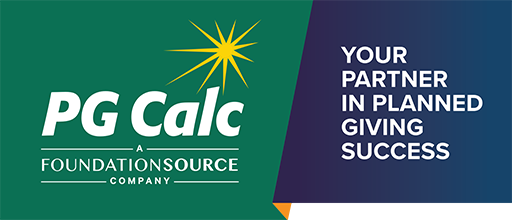Your gift acceptance policy is more than a formality. In some ways, your gift acceptance policy is like the steering wheel in your car: you use it to steer toward the best gifts and away from costly potholes. Of course, your steering wheel is equipped with an air bag that might save your life, and a well-crafted policy can quite literally save your organization’s life too. However, the steering wheel analogy goes only so far. Unfortunately, gift acceptance policies are optional, not standard equipment like a steering wheel. And, in contrast to a steering wheel, you’ve got to build your gift acceptance policies yourself.
Unlike standard equipment that comes with a car, you must custom design gift acceptance policies to fit your organization. The process of developing and adopting your gift acceptance policy is as valuable as the final document because it forces a healthy internal dialogue before you’re wrestling with crucial, time-sensitive issues. Developing your policy will involve discussing issues and alternatives that will inevitably arise as you pursue more complex charitable gifts. A workable set of policies and procedures will provide a solid basis for good decision making that will serve both the organization and the donor.
Gift Acceptance Policy Objectives
A well-crafted gift acceptance policy provides a clear, consistent framework and accomplishes several important strategic objectives:
Safeguard Mission and Values – A gift acceptance policy ensures that every gift accepted supports the organization’s core mission and strategic goals. It provides a formal basis for declining gifts that are contrary to the organization’s values. It outlines how the organization will handle gifts with specific donor restrictions and ensures they are aligned with the organization’s programs and administrative capacity.
Mitigate Legal and Financial Risk – The policy can screen out risky gifts, such as a gift of real estate with environmental cleanup liabilities or maintenance costs that outweigh the donation’s value. A well written policy will help safeguard the organization’s tax-exempt status by creating rules to adhere to IRS regulations, especially concerning complex donations like securities, real estate, and in-kind gifts.
Ensure Clear, Efficient Decision Making – The policy designates who (e.g., a Gift Acceptance Committee, the Board, or the Executive Director) has the authority to review, approve, or decline different types of gifts, which can prevent unauthorized decisions and potential conflicts of interest. It also takes the pressure off the gift officers and staff who can explain to a donor that a complex gift requires special approval.
Build Donor Trust and Manage Complex Relationships – A documented policy ensures all donors are treated consistently, regardless of their relationship with the organization, which reinforces public trust. It clearly communicates to donors the types of gifts that are accepted and how they will be processed, valued, and used, which helps prevent misunderstandings and conflict later. When a gift must be declined (because it’s too costly to manage, inappropriate for the mission, or too restricted), staff can refer to a formal, objective policy instead of delivering a personal rejection, which may help preserve the donor relationship.
Stop Guesswork and Streamline Operations – It provides a framework for procedures accepting and recording various types of gifts, eliminating confusion and guesswork. By outlining routine and non-routine gifts, it allows common donations to be processed quickly while flagging complex gifts requiring additional attention.
Developing a Gift Acceptance Policy
The policy development process must be a collaborative effort including the development office, the business office, legal counsel, and leadership. While the development office may lead the process, the creation of policies and procedures should never be a solitary effort. An organization should consider forming a task force or an advisory committee. Members should have an understanding of the organization and its processes and expertise or interest in subject areas to be covered by the policies and procedures, such as internal processes, legal affairs, financial records, and marketing. The group may need to meet many times before arriving at a final document. Additional staff support may be required for research, distribution of material to committee members, planning agendas, making assignments, and managing the process.
The actual drafting of the policy document will most likely fall to one individual because writing by committee is almost never a viable approach. However, committee members should have ample opportunities to provide their comments and edits throughout the drafting process. Plan to go through several drafts before finalizing the document. Of course, the chief executive officer, chief business officer and members of the development staff should be kept advised on the progress in order to ensure they are invested in the final product.
Depending upon the organization’s governance model, formal adoption of the policies by the governing board is likely required. In any case, informing the governing board and securing their support is essential. Charitable gifts, especially planned gifts, involve serious legal commitments on the part of the organization. It is crucial that the governing board be fully aware of the organization’s policies, and that they understand and support the representations made by the staff on behalf of the organization.
A gift acceptance policy is more than a component of good governance; it ensures long-term viability and affirms the organization’s commitment to its mission and its donors. A well-crafted gift acceptance policy, developed through an open and collaborative process, will help drive consistent and successful fundraising efforts. Organizations can head in the right direction with a gift acceptance policies as the steering wheel – and the airbag – for a successful fundraising journey.

